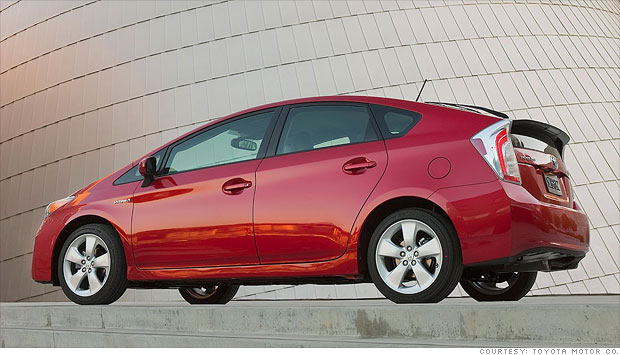Oil change is a huge issue for a lot of people. Some of the
people don’t even know when to change your oil. While some do not remember to
change the oil in their car, they either have a windshield reminder sticker
that helps them to remember to get an oil change, or they change the oil when
their car starts to give them trouble. To all those out there, stop following
these stickers, instead follow the automaker’s advised service intervals.
Thanks to the modern technology oil change has become very easy. These days
most cars have built-in oil monitoring systems, which let you know when to go
for an oil change.
Let the Manual Guide You
Bless the good old manuals. You can get all the information
you need regarding oil change in the maintenance section of the owner’s manual.
You can even get a softcopy of our manual in case you have misplaced or lost
your hardcopy, all you have to do is go online and search for the right manual.
You will find that the owner’s manual has two lists of
service schedules, in most of the cases. These are based on type of driving
conditions; they can be normal and severe or special. Carefully read the manual
to find out more about the driving conditions or how you drive. In most cases,
the vast majority of people fall into the normal schedule.
Trust Your Oil Life Monitor
With the constant innovation and technological advancements,
life is becoming easier. One of the many innovations that have helped people is
the oil life monitors systems. An increasing number of automakers are moving
towards installing oil life monitors of varying complexity in their vehicles.
The basic versions tend to be more like maintenance protectors rather than
actual systems. They are determined by mileage, and maintenance light starts
blinking when the vehicle reaches a certain range of mileage.
The advanced oil life monitors rely on constantly taking
information from numerous sensors throughout the vehicle and then use a complex
algorithm to predict the life of your oil. The frequency of oil change depends
on the driving conditions and habits. The knowledge about when your next oil
change is due is al; based on guesswork. There is no specific time after which
you should change your oil. You just have to drive and wait till the
maintenance light comes on. The frequency of oil changes vary from car to car.
You will be surprised at the difference of oil change between cars.
It's also essential to note that these systems are attuned to
work with the factory-recommended oil. They aren't sophisticated enough to
recognize that you've upgraded to another blend, so save your money and stick
to the factory fill.
Use the Time Estimate
However if you have a weekend car or use your vehicle seldom,
you'll have to change your maintenance strategy a bit. Many specialists believe
that over time, oil becomes contaminated by gases that blow by the pistons, and
the longer the oil sits with that contamination, the more it degrades.
Whichever method you follow, whether its the oil life
monitor system set by the automaker or set mileage intervals, all of them have
prescribe a maximum time frame for an oil change. For example, the 2010 Toyota
Prius has a recommended oil interval of one year or 10,000 miles — whichever
comes first. Most of the oil life monitors are more sophisticated than others;
vehicles that employ them will have different time recommendations. This
information can be found in the owner's manual.
Get an Oil Analysis
The two type of driving conditions have been of a point of
conflict between vehicle owners, mechanics and dealership service departments
for very long. Each one has his/her own beliefs, and based on these beliefs
they have their own recommendations. However the best way to understand your
driving style is to get your analyzed.
The advantage of this oil analysis is that it will tell you
the condition of the oil in your car; it can also uncover any issues that your
engine might be experiencing. Sometimes your you might find out that the sample
tests show traces of fuel and coolant in the engine oil, which are initial
signs of engine complications. These tests also let you know how far you can
travel in between oil change.
Extended-Life Oils: It's Safe to Switch
Numerous oil companies are releasing the extended-life oils,
which are guaranteed for precise mileage listed on the bottle. For example, Mobil's
most advanced fully synthetic product, Mobil 1 Extended Performance, for
instance, is guaranteed for 15,000 miles. The company advises it for vehicles
that have crossed their warranty period. This is an important point because
many automakers will void your warranty if you do not follow their recommended
service intervals.
By following the above listed points not only will you know
when to change your oil, but it will also help in protecting your engine from
having any serious issues that might harm your car.
At Auto House Calgaryhttp://www.kijiji.ca/b-cars-vehicles/calgary/c27l1700199 we understand your need better and therefore aim at providing you with the best quality services that are reliable and have reasonable prices.













